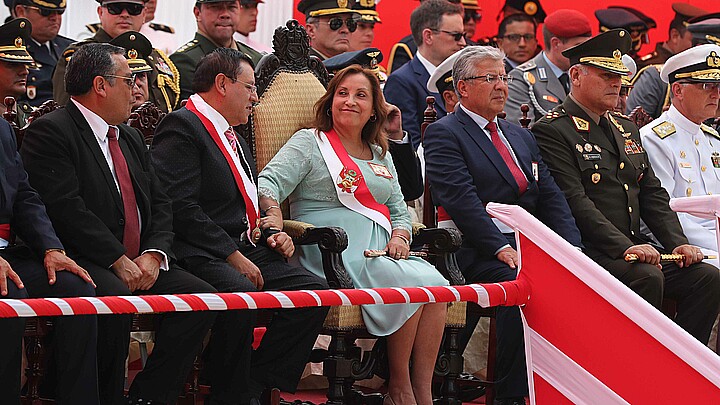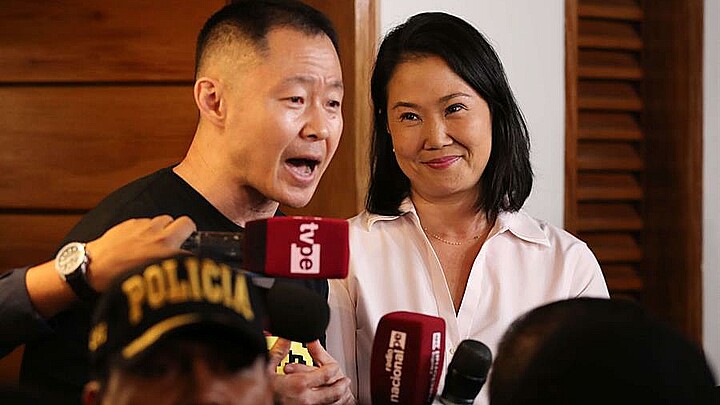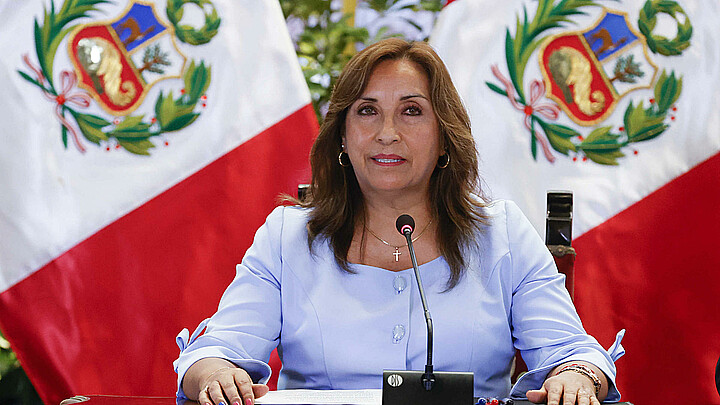Politics
After fourth cabinet reshuffle, Peru's controversial new PM promises to support free-markets
"Our policy is the free market, but with the participation of the state," Torres told reporters
February 10, 2022 12:01pm
Updated: February 10, 2022 1:34pm
Peru’s left-wing President Pedro Castillo swore in on Wednesday his fourth cabinet since taking office six months ago -- replacing Hector Valer just four days after his appointment over allegations that he had abused his daughter and late wife, accusations which he publicly denied in the Peruvian media.
✅ El jefe de Estado, @PedroCastilloTe, tomó juramento a los integrantes del nuevo Gabinete Ministerial, liderado por @anibaltorresv, durante una ceremonia realizada esta noche en Palacio de Gobierno.#GabineteTorres #SiempreConElPueblo pic.twitter.com/O8zJG1Mpb9
— Presidencia del Perú 🇵🇪 (@presidenciaperu) February 9, 2022
The latest cabinet reshuffle comes after months of internal struggles within the government that so far have come to define Castillo’s embattled presidency.
Castillo has also faced resistance from conservative opposition groups – who unsuccessfully attempted to impeach him in December – and from his very own Free Peru party, the Marxist political bloc which has consistently attacked the president for promoting more centrist economic policies.
One Peruvian government insider told ADN America, “In recent years, Peru has been characterized by a constant power struggle between the executive and the legislature. Both powers try to corner each other and use their powers as a deterrent weapon.”
Among the new ministers appointed by Castillo stand Health Minister Hernan Condori and Prime Minister Anibal Torres.
But Castillo’s latest cabinet picks have already stirred controversy across the Andean nation’s political world and the Congress’ willingness to approve the new ministers will soon be put to the test. The president will now have two chances to have his cabinet approved by congress before he is given the option to dissolve the legislature and call for new elections.
Condori, the newly appointed health minister, has already come under fire from the Faculty of Medicine of Peru’s National University of San Marcos for promoting questionable pharmaceutical products amid the COVID-19 crisis – potentially for a profit.
“We demand the incorporation of an honest professional who provides guarantees to Peruvian society of technical and honest leadership. The Faculty of Medicine expresses its concern and believes that it is imperative that action be taken due to the urgent need for effective leadership in managing the current pandemic,” the faculty said in a statement.
“It is unfortunate that the president would appoint a health minister that has been investigated by the Anti-Corruption Prosecutor’s Office and who supports the use of pharmaceutical products without scientific support,” the statement further notes.
Torres, a 79-year-old who has led the justice ministry since the government took power in July, pledged on Wednesday that he would pursue free-market policies but also emphasized that the government should work to prevent monopolies and other concentrations of economic power, Reuters reported.
"Our policy is the free market, free economic enterprise, free business, but with the participation of the state to control monopolies, oligopolies and (other) dominant positions," Torres told reporters.
"They won't be able to label us communists because we haven't carried out any actions that align with that political ideology," he added.
Yet while these declarations could be a relief to conservative lawmakers, Torres continues to be controversial as he has been a vocal supporter of moving former President Alberto Fujimori from his current special prison to a common prison.
Fujimori, the father of Keiko Fujimori, who Castillo bested in the last presidential election, is currently serving 25-years in prison for his role in killings by death squads during Peru’s internal war with the Shining Path.
The Fujimoris continue to enjoy wide support among Peru’s conservative elements and such comments have previously been met with ire.
Torres is viewed by many as a Castillo loyalist and will be tasked with helping advance the president's agenda in a fragmented Congress which is dominated by conservative lawmakers hostile to the left-wing president.
But one minister appears to have survived the Cabinet reshuffle – causing many analysts to breathe a sigh of relief.
Oscar Graham – a London-educated technocrat who spent more than two decades at Peru’s central bank – was kept on in the new Cabinet, perhaps in a nod to investors and other business-friendly advocates.
According to Rodolfo Rojas, a partner at Lima-based Sequoia political advisory group, “The presence of someone like Graham confirms that the president knows he can’t touch the macroeconomy” and his appointment “gives signals to the markets that Peru will maintain macroeconomic stability.”
Although the political battle appears to be over for now, Peru’s increasingly unpopular president still faces multiple crises, including a catastrophic oil spill and a surge in crime that has led to a state of emergency in Lima.










